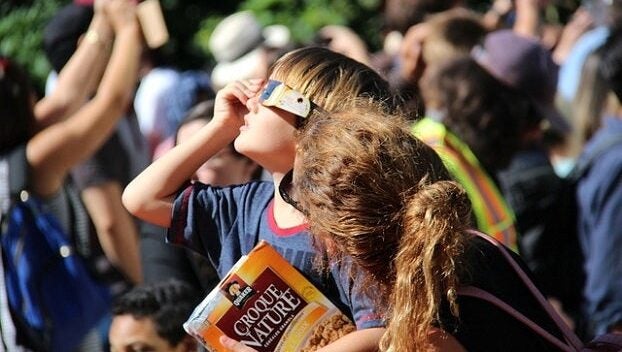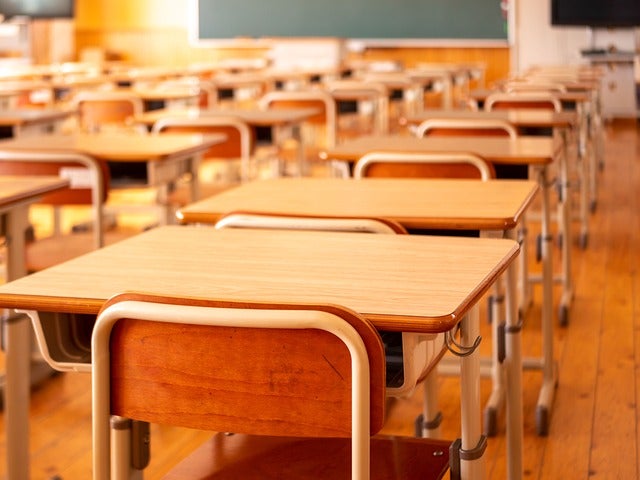School districts split on solar eclipse plans. Some will close.
Published 7:01 am Tuesday, April 2, 2024
|
Getting your Trinity Audio player ready...
|
Chip Jones sees it as a learning experience. On Monday, April 8, Central and Southside Virginia will be able to witness a solar eclipse, the first since 2017. Starting at 1:57 p.m. and running until 4:28 p.m., this area of Virginia will see 83.8% of the sun blocked by the moon when the eclipse reaches its peak.
As that’s a weekday, students and teachers are supposed to be in school. Districts, however, are split on how to handle the situation. Two of our local school systems, Buckingham County and Prince Edward County, made the decision on Thursday, March 28 to completely cancel school on April 8. In Cumberland County, however, schools will be on a regular schedule that day.
“We are providing our students and staff with glasses for the eclipse,” Jones said. “This event can be a great learning experience for our school community.”
The goal here is to safely observe the event and then come back inside to talk while the idea is still fresh in everyone’s mind. It’s also something of a rare opportunity, as the next eclipse of this type isn’t expected to arrive until August 3, 2044. Miss out on this and it could be 20 years before something similar comes by. Jones isn’t the only superintendent making that decision. Schools in Charlotte and Lunenburg counties will also have regular schedules that day. As far as Spring Break goes for Cumberland, it started on Friday, March 29 and it’ll end on Friday, April 5.
What about Prince Edward?
So that leaves Prince Edward and Buckingham. Prince Edward County Public Schools will basically just extend their time out of the classroom. Students were supposed to return on Monday, April 8 from Spring Break. Now they’ll come back on Tuesday, April 9. In a letter sent out to students and parents, Prince Edward Superintendent Dr. Barbara Johnson encouraged parents and students to watch the eclipse. And she said when students return to the classroom later in the week, some classes will discuss the phenomenon.
“Although our students will not be in school for the event, we do want them to engage in discussions and activities regarding the event,” Johnson wrote. “We are encouraging our teachers to prepare eclipse-related activities, upon return, which will challenge our students’ critical thinking skills, as well as pique their interest in other space science and NASA-related topics.”
In the letter, she also encouraged parents to have “active conversations” with their students about the eclipse and what it means, where it comes from.
Speaking later last week at a town hall meeting, Johnson said there were a couple factors that went into the decision, but a key one was the fact the eclipse will be going on during dismissal time and if it was for 10 or 15 minutes, then sure they could hold students in class.
“(But) a two-hour block is too long to hold students,” Johnson said.
She also added that the schools wouldn’t have any material to protect students from looking up and burning their retinas. The district put in an order for solar eclipse glasses, Johnson said, but they never arrived. And so, students will stay home for one extra day of Spring Break.
Buckingham keeps students home
Buckingham County schools, meanwhile, took a bit from both of the other districts. On the one hand, they provided each student with solar eclipse glasses on Friday, March 29, along with instructions on how to use them. The students will just be using those glasses at home, rather than with the class. Buckingham announced Friday that they’ll be extending Spring Break by a day as well, with students and staff now officially off until Tuesday, April 9. One issue that Buckingham officials brought up is that for some schools, the eclipse would happen during dismissal and they felt it could lead to problems.
How to watch solar eclipse
So if you’re at home with grandchildren during the eclipse or have kids will will be out of school, here’s some tips to go over, courtesy of NASA.
First and foremost, don’t look straight at the eclipse without eclipse sunglasses. If you look straight up at the eclipse with nothing but your bare eyes, it can cause serious damage, even if it does look dark. That’s because the intense light from the sun could cause permanent damage to your retina. And no, this isn’t something you get from staring up at it for minutes. NASA officials warn that eye damage can happen within just a couple seconds of staring straight at the eclipse.






